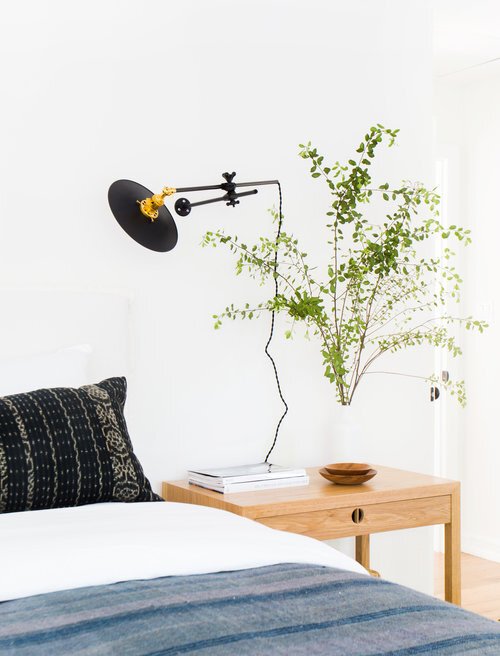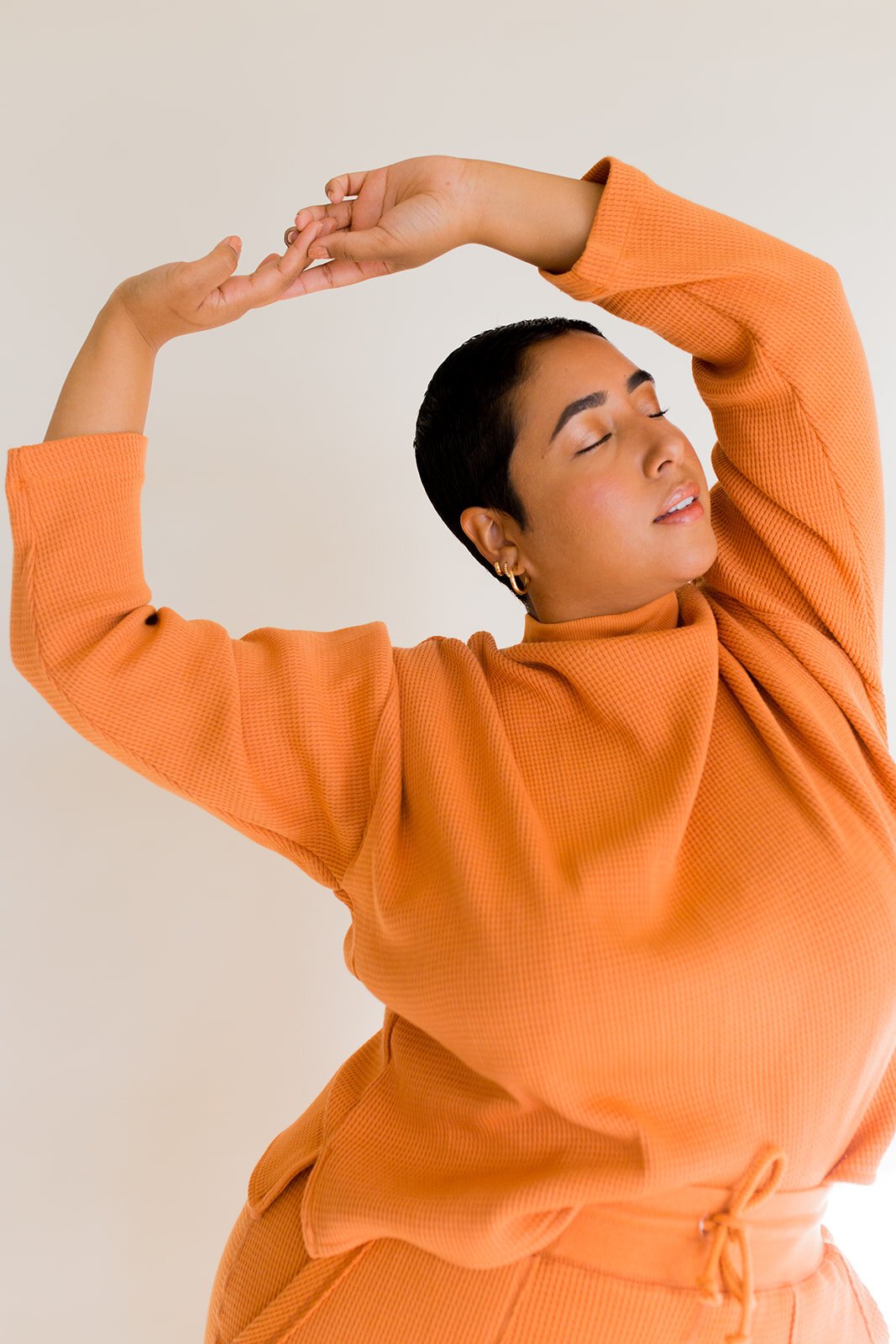
How To Pursue Mindful Engagement This Election Cycle
With just weeks to go until the 2024 presidential election, you may be, like me, experiencing a maelstrom of feelings. There’s excitement, the energetic buzz of change, passion, curiosity, and hope. You may also experience uncertainty, fear, worry, or anxiety, especially when consuming news that is tragic and/or maddening.
“With just weeks to go until the 2024 presidential election, you may be, like me, experiencing a maelstrom of feelings.”
Engaging with the election cycle — reading the news, discussing major issues, researching candidates and initiatives — can be an exciting civic responsibility. It can also feel overwhelming, especially when you’re highly invested in the outcome. Constant stress can seem like a compulsory part of the experience, but does it have to be? Is it possible to be plugged into the election without getting engulfed in anxiety?
I turned to expert voices and resources to find ways to mindfully engage in the upcoming election cycle.
How to protect your energy and wellbeing
It’s important to acknowledge that the reason election cycles can feel so fraught with emotion is because the future of our country is deeply meaningful to so many of us. We stress because we care; we vote because we care. To set a healthy and safe foundation for ourselves going into this cycle of both increased political engagement and heightened emotions, clinical psychologist and expert in self-compassion, Thekla Brumder Ross, PsyD advises us to set boundaries while also honoring our own lived experience.
“It’s important to acknowledge that the reason election cycles can feel so fraught with emotion is because the future of our country is deeply meaningful to so many of us.”
In practice, we can do this by reflecting on the four pillars of wellbeing — awareness, insight, connection, and purpose — in a sociopolitical context. Here’s how Dr. Brumder Ross describes how each of these pillars can support us in our efforts to more mindfully engage this election cycle:
- Awareness: Acknowledge that “this pain and discomfort belongs.” Recognize that any feelings of distress are valid and a natural part of being human.
- Insight: Clinical psychologist Tara Brach describes making a “U-turn” away from fixating on external stimuli (news stories) and instead turning inward to connect with your own vulnerability. Here we may also think of the refrain “name it to tame it” — bear witness to your own suffering and identify your discomfort.
- Connection: Seek out support from communities and people with shared lived experience. Nurture these trusting relationships.
- Purpose: Consider engaging in volunteer work or having a courageous conversation (sharing your story, speaking and listening with vulnerability) to foster a sense of purpose.
On the last point, Dr. Brumder Ross reminds us that “we bridge divides through personal stories. If you feel safe enough, speak up. You never know what bridge you can build through your own authentic lived experience.” Remember, however, that only you get to decide which people, events, or places are safe spaces for you.
Know your triggers and use breath
Especially with issues that affect us personally, it’s easy to feel triggered when someone reports or comments on that issue in a way that feels confronting. Understand that if you choose to closely follow the news during an election cycle, these issues will come up at a higher-than-normal frequency.
“Especially with issues that affect us personally, it’s easy to feel triggered when someone reports or comments on that issue in a way that feels confronting.”
Laura Page, a mindfulness coach who has coached thousands of employees at Google, advises us to “be mindful of your triggers and check in with yourself before you do an activity like checking the news, scrolling social media, or engaging in a conversation about politics. Give yourself permission to take time away from the topic or situation.”
I struggle to find the balance between bearing witness and self-preservation, so giving myself permission to walk away can feel difficult. If I’m not going to sit here and have this difficult conversation, this person might not understand how important XYZ piece of information is to this meaningful topic. While this may be true, it’s also just as likely if you feel this way that the person you’re debating or conversing with already has strongly held opinions that may only serve to trigger you. Prioritizing and protecting your own energy is the best way to stay engaged.
Page says that “it’s easy to get swept up in the cortisol spikes and/or stress of the situation and lose your grounding. Utilize your breath and come up with mantras to help ground you to reality.” These mantras may be something like, “I am safe,” “I am here in this moment,” “I am protecting my energy,” or, “I am setting a boundary to protect myself.”
Determine your news preferences
When you consider how you wish to consume the news, there are several factors you may wish to take into account. Considering frequency, medium, voice (the publication, influencer, friend, etc., you’re engaging with), and physical location can help you set boundaries for yourself.
“Considering frequency, medium, voice (the publication, influencer, friend, etc., you’re engaging with), and physical location can help you set boundaries for yourself.”
Dr. Brumder Ross discusses one’s environment as an element of wellbeing. She says, “Create a safe space in your home environment where you don’t consume news or allow in violent or harmful content.” Whether that’s a specific room (like your bedroom) or even a corner where you typically meditate or exercise, create a physical boundary where election-related consumption and conversation are off limits.
Newsletters are an excellent way to know what type of content is going to hit your inbox, and when. I used to refresh the news — quite literally — throughout the entire day. I was up-to-date on the tiniest of updates for any issue or topic that was fit to print. Unsurprisingly, it didn’t serve me. I was numb to much of it, overinvested in certain news cycles, and not always taking the time and space necessary to formulate my own opinions beyond what I was reading.
I’ve since subscribed to a morning and evening newsletter from my favorite news source. I get a digest twice a day, only one of which I typically read in its entirety, and it helps me avoid my refreshing habit with full confidence that I’ll get the highlights I need. Most major news sources now offer some kind of newsletter digest, so consider selecting your trusted resource and subscribing to email updates at the cadence of your choosing.
Balance responsible citizenry and wellbeing
For some of us, election cycles can feel invigorating and inspirational; for others, anxiety-inducing. For many of us, it can change by the day or even the hour. Dr. Brumder Ross helps put responsible citizenry into context by acknowledging our civic engagement.
“For some of us, election cycles can feel invigorating and inspirational; for others, anxiety-inducing.”
She says, “We live in a country where most of us — let’s be clear here, structural violence is still very present — can participate in the democratic process. Voting is generally considered a fundamental responsibility of citizenship in a democracy.” We can also remember that responsible citizenry and wellbeing are not mutually exclusive, and Dr. Brumder Ross suggests applying Kristin Neff and Chris Germer’s three components of self-compassion to our role as citizens. This asks us to:
- Recognize the common humanity in political differences
- Be kind to ourselves when we’re feeling overwhelmed by civic responsibilities
- Mindfully engage with political information without becoming all-consumed by it
Dr. Brumder Ross reminds us to approach this responsibility thoughtfully, taking into consideration our values along with the potential impact of our vote on our community and future generations.
Approach this season with intention
As we approach the upcoming presidential election, many of us feel the effects of a deeply divided nation. Page and Brumder Ross both remind us of the importance of pausing — taking a moment to reflect, recite a mantra, or even just breathe when we feel overwhelmed or discouraged.
Dr. Brumder Ross calls on the philosophies of several great healers and thinkers to remind us of the individual work we can do to help heal a divided nation:
- Have compassion for “the other.” The Dalai Lama emphasizes the importance of developing empathy for those with different viewpoints, and recognizing our shared humanity.
- Be aware of your biases. We can apply Thich Nhat Hanh’s teachings by understanding our own thoughts and biases. This awareness can help us better understand our reactions to others and approach differences with a calmer, more open mind.
- Truly listen. Oprah Winfrey often highlights the importance of listening to — rather than just hearing — others. One way to start this act of “embodied listening” is to not think about how you’re going to respond until the other person is fully finished speaking.
- Embrace your imperfections. The writer Anne Lamott encourages us to embrace our own imperfections and share our authentic selves. When we strip away pretense, we tend to find we have more in common than we think.
- Never stop learning. bell hooks emphasizes the importance of continuous learning in order to challenge our own assumptions and promote inclusive understanding.
- Draw on principles of nonviolence. Gandhi’s framework teaches us to express our views and needs without aggression or blame.
- Help uplift your community. Resmaa Menakem’s work on healing racial trauma emphasizes the importance of building strong, supportive communities in which there are spaces for genuine connection and shared experiences.
It makes sense to consider leaders past and present as we consider the impact our actions may have on future generations.
Get involved
This November, we all have the opportunity to enact change, whether by volunteering, having courageous conversations with friends and family, or by voting. Here are several resources for registering to vote as well as learning more about the initiatives on your ballot.
- Rock the Vote: Register to vote in two minutes or less.
- Vote Like a Mother: This voter registration and education campaign by Chamber of Mothers encourages us to get educated about candidates and issues and show up to vote. (Follow on Instagram)
- League of Women Voters: This nonpartisan, grassroots organization aims to empower voters and defend democracy through advocacy, education, and litigation at local, state, and national levels. The League of Women Voters also sponsors Vote 411 Voters’ Guides, which allows voters to easily access information specific to their ballot. (Follow on Instagram)
- Vote Smart: Offers free, factual, unbiased information on candidates and elected officials. (Follow on X)
Megan Lierley is a writer and editor based in Northern California. She currently leads content for Cora, the women’s wellness company. On any given day, there’s a good chance she’s talking tampons, practicing yoga, writing her weekly culture and current events newsletter, reading a historical fiction novel, or eating a burrito in Dolores Park.



